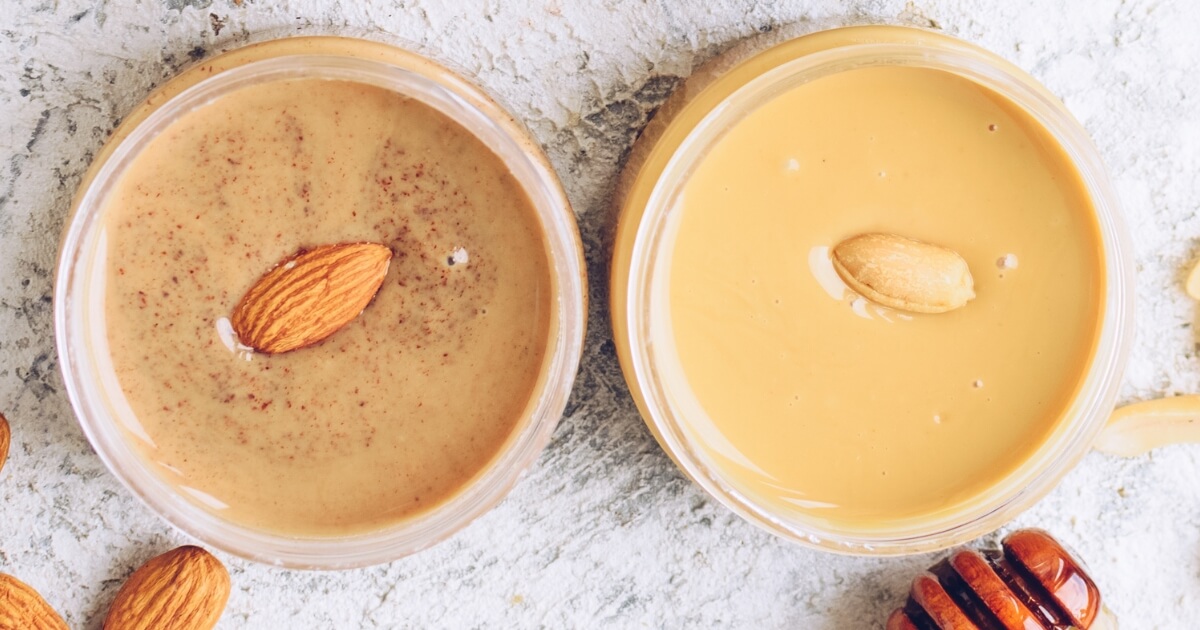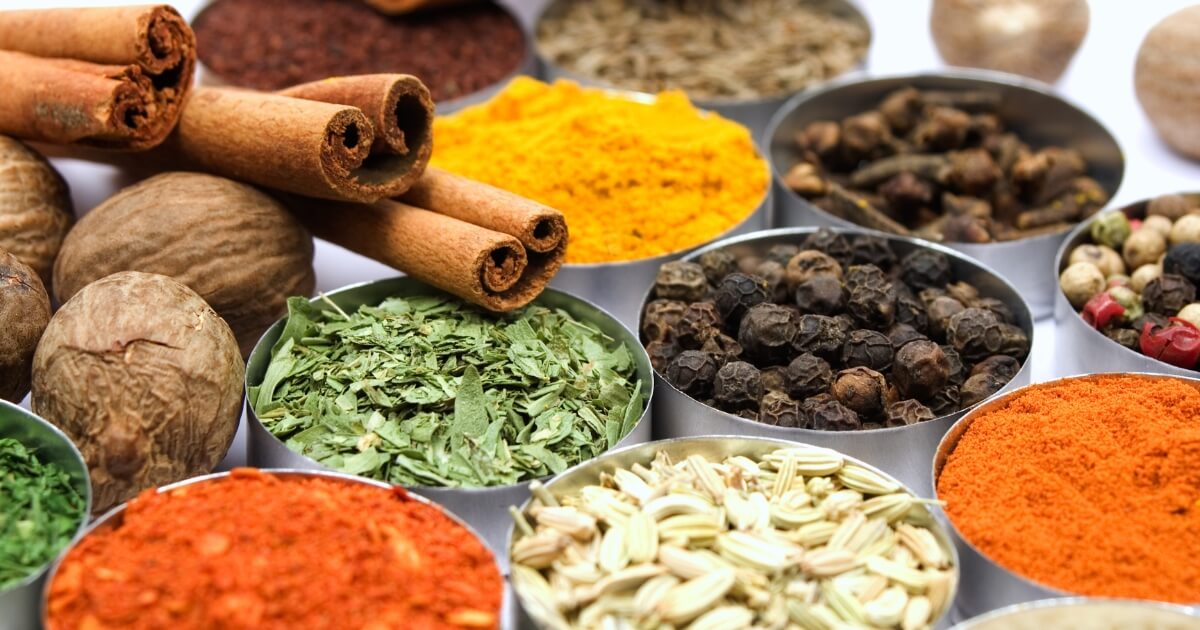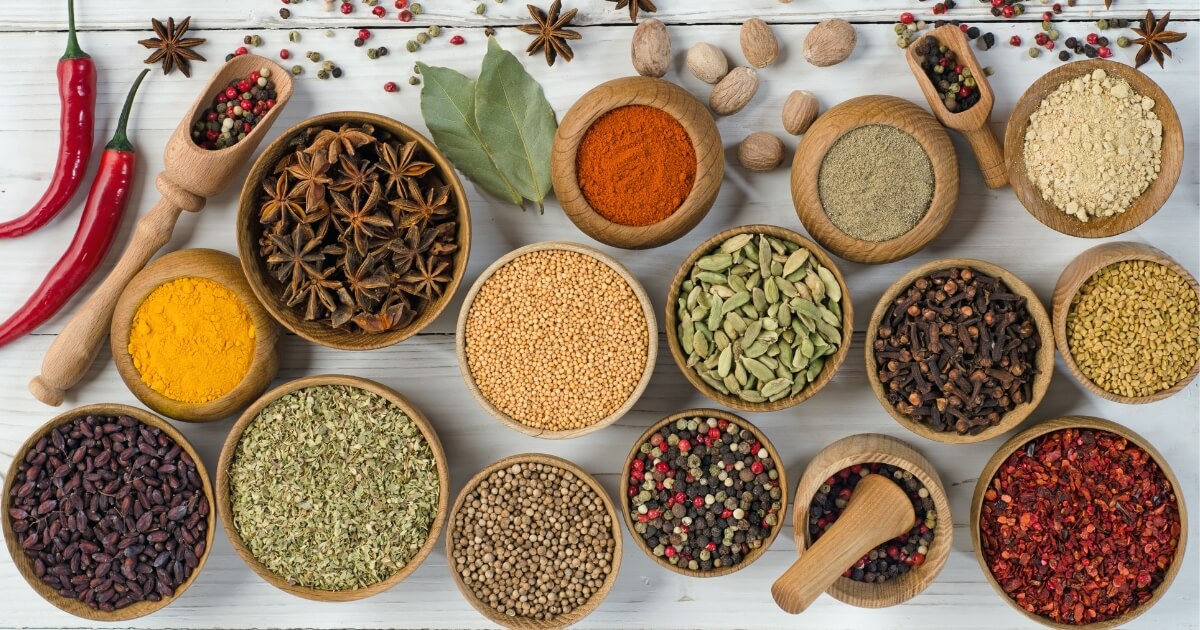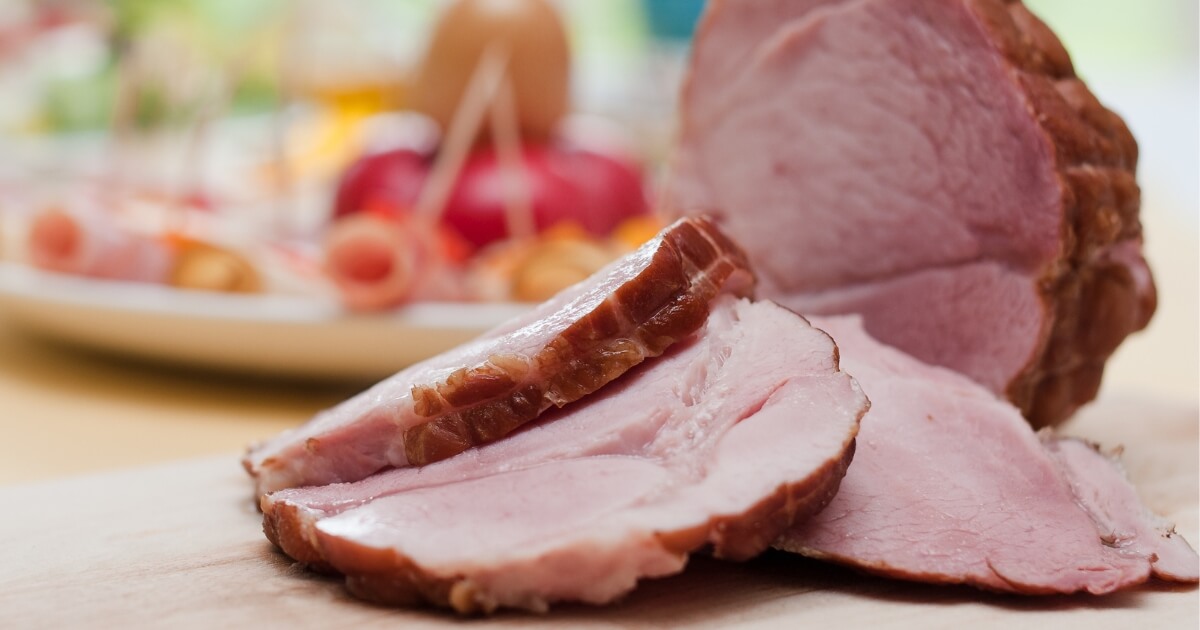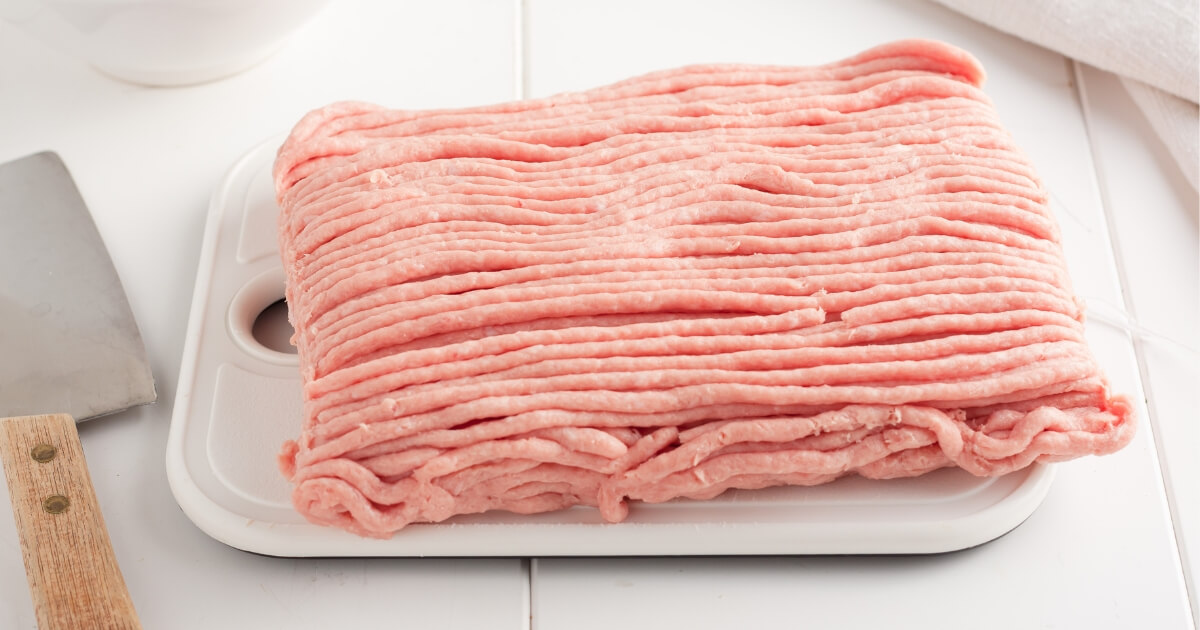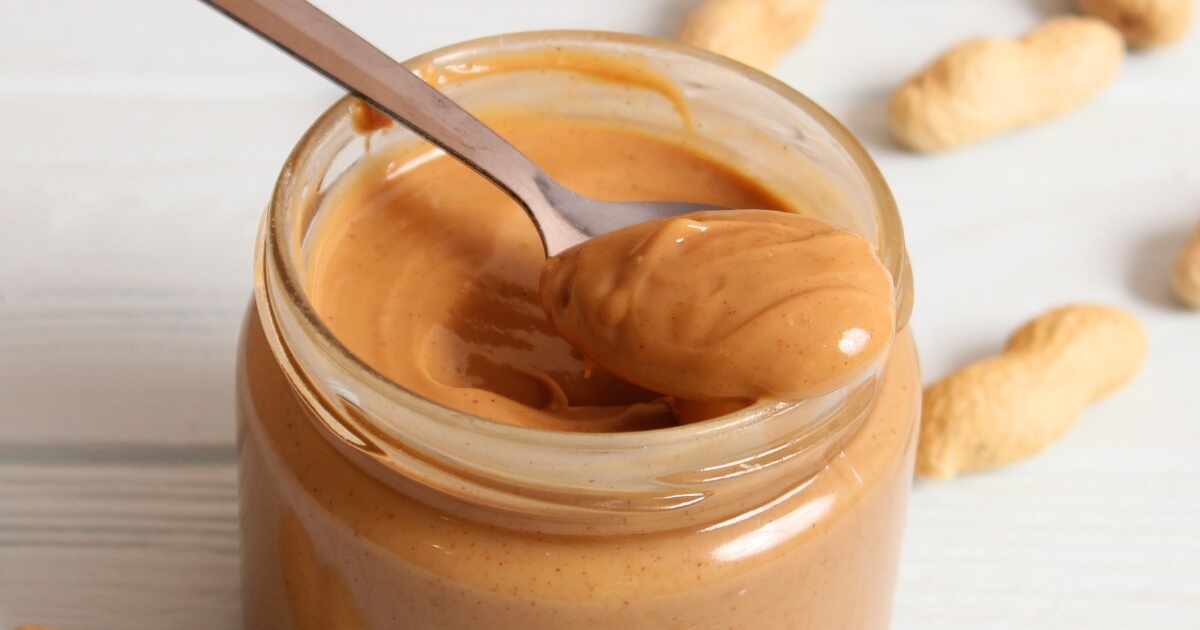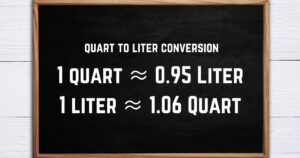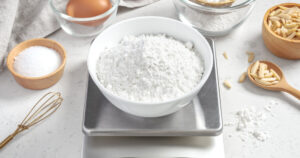Like most produce, broccoli can spoil within a few days if not stored properly.
But how do you know if brown broccoli is safe to eat? What happens if you eat discolored broccoli? How do you know if my broccoli has gone bad?
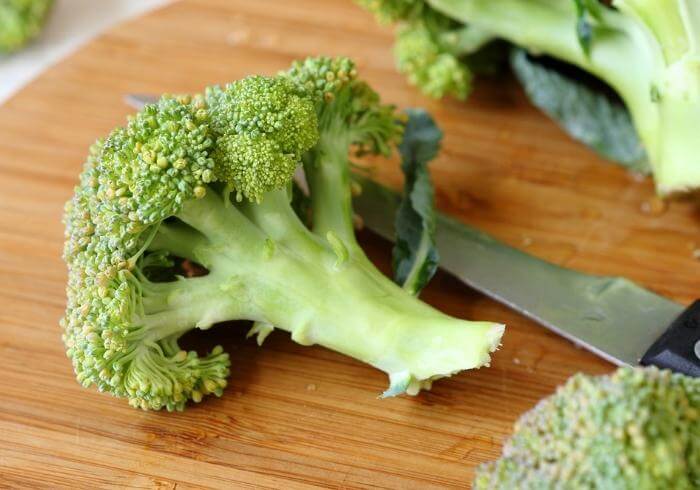
It’s important to look for the signs of bad broccoli, including mold, discoloration, unpleasant odor, and changes in texture. Spoiled broccoli can be dangerous to eat, especially if there are brown, black, or white spots on it.
So, let’s dive into how long broccoli lasts and what to look out for.
How Do You Know If Broccoli Is Bad?
There are some telltale signs to know if your broccoli is no longer safe for consumption.
When your broccoli florets start changing into a yellow or brown color, it’s a sign that it is starting to spoil. While it may be safe to consume, you should use it up asap!
If you spot white or black spots on your broccoli, it is no longer safe to eat. If you don’t have a compost bin, wrap it up and toss it in the garbage.
Broccoli should smell like fresh vegetation. If you open the vegetable drawer in your fridge and you smell an unpleasant odor, it is a sign that your broccoli is starting to rot. Get rid of it.
If you chop your broccoli and it releases a bitter smell or smells especially strong, unfortunately, it is time to toss it.
Fresh broccoli will be a bright green color.
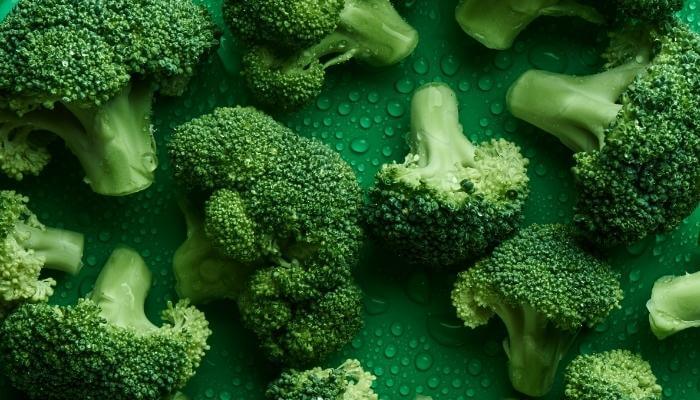
The trunk of your broccoli should be firm. If the trunk or the stem of your broccoli is soft, your broccoli is beginning to spoil or already has spoiled.
Your broccoli florets should be soft and flowery. If the florets look dry or wilted, this is a good indication that your broccoli has gone bad and should not be eaten.
If your broccoli has a slimy texture, it is not safe to eat. Again, wrap it up and toss it!
What Does Bad Broccoli Look Like?
The appearance of your broccoli will change when it starts to spoil.
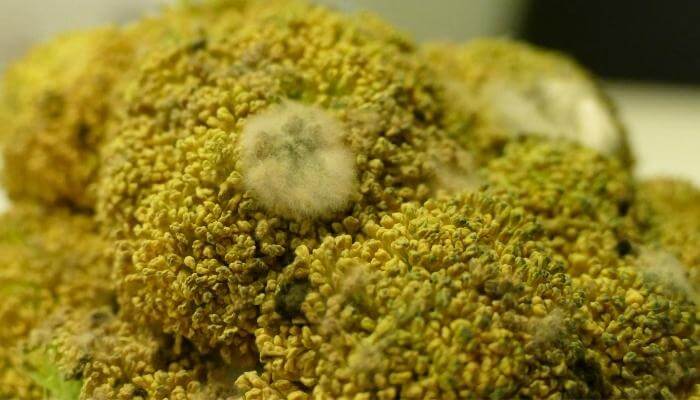
Here are some indications that your broccoli has gone bad:
- Patches of yellow or brown colors
- White or black spots
- The florets look dry or wilted
- It looks or feels slimy
- Signs of mold
What Does It Mean When Broccoli Turns Yellow?
When your broccoli turns yellow, it means it is starting to go bad, but it is still edible. Although you can still eat it, yellow broccoli can taste bitter and has lost much of its nutritional value.
Is Brown Broccoli Bad?
If you keep broccoli stored for too long, it will begin to mold. Normally, we associate mold with black or white, but if your broccoli starts turning brown, it is a good indication that it is infested with mold, and it should not be consumed.
This is not to be confused with broccoli that has purple coloring. I always recommend tossing things if I’m not sure. Better to rid of a few dollars of bad food than to spend hundreds or thousands on medical bills recovering from food poisoning.
Is Soft Broccoli Bad?
If your broccoli is soft and the florets are limp, it means it is old. It has lost moisture and is starting to rot. If you notice your broccoli has lost its crispiness, it is best to toss it.
What Are Black Spots On Broccoli?

Black spots on broccoli are one of the first signs of decomposition. These spots can appear in as little as 48 hours, or they can occur up to a week later.
Black spots on broccoli are from mold or fungal growth taking over. Cool, moist conditions promote these growths.
Make sure your refrigerator crisper is kept at the ideal temperature without a lot of moisture. If you’ve ever kept vegetables in a plastic bag in the fridge, keeping broccoli in a plastic bag in a crisper can also lead to it going bad quickly.
How Long Does Broccoli Last?
Broccoli can be difficult to store. In certain situations, fresh broccoli may last for just a couple of days. Here is approximately how long your broccoli will stay good:
- Raw Broccoli On The Counter: 1-2 days
- Raw Broccoli In The fridge: 4-5 days
- Raw Broccoli In The freezer: 1 year
Raw broccoli left on the counter will spoil much faster than in the fridge or freezer. It will only last for a couple of days, so you should only store it on the counter if you’ll be using it immediately.
Raw broccoli can last in the fridge for 4-5 days, but it may last longer depending on how you store it. You can wrap your broccoli in fresh paper towels or keep it in a ventilated bag. Keeping it in those plastic bags from the grocery store will encourage moisture buildup and spoil your broccoli quicker.
The best way to freeze raw broccoli is by separating the florets from the stems, steaming or blanching them gently just before tender, and then storing them in Ziplock bags or freezer-safe containers. This way, they will be quick to reheat from frozen.
- Cooked Broccoli On The counter: 2-3 hours
- Cooked Broccoli In The fridge: 4-5 days
- Cooked Broccoli In The freezer: 1 year
Cooked broccoli only lasts for a couple of hours on the counter, so it is best to eat it or store it immediately.
To maximize the shelf life of your cooked broccoli, you should store it in airtight containers.
To store your cooked broccoli in the freezer, you should transfer it to a tray, separate the pieces, and place them in the freezer until they are solid. Once solid, you should then transfer them to a freezer bag.
What Happens If You Eat Bad Broccoli?
Broccoli doesn’t have an expiration date, so you have to look for signs of spoilage.
Yellow broccoli is generally safe to eat, as long as there are no other indications of the broccoli being bad.
However, it will taste bitter, and you will not get all of the vitamins and nutrients that fresh broccoli provides.
Eating moldy food of any sort can cause some unpleasant side effects. Certain molds can also cause allergic reactions, respiratory problems, or infections.
If you have a healthy immune system, you should be fine, according to the USDA, if you accidentally eat a small amount of moldy food. If you consume a lot of molds, you could get food poisoning or something more severe.
Broccoli that has a developed slimy texture is going through the process of decay. If you eat it, you will likely get food poisoning, especially if eaten raw.
I don’t recommend cooking anything that has spoiled. Get rid of it!
FAQs About Broccoli Going Bad
How Long Is Fresh Broccoli Good For?
Fresh broccoli can last about 4-5 days in the fridge and 1-2 days on the counter when stored properly.
Does Broccoli Have To Be Refrigerated?
No, broccoli can be left on the counter for a couple of days or stored in the freezer if sealed in a proper container.
How Long Does Broccoli Last In The Fridge?
Fresh broccoli lasts 4-5 days in the fridge, but it could last longer depending on how it is stored. Cooked broccoli lasts about the same amount of time when stored in a proper container.
How Long Does Steamed Broccoli Last?
When stored as airtight as possible, steamed broccoli lasts 4-5 days in the fridge, a couple of hours on the counter, and a year in the freezer.
Why Does My Broccoli Get Mushy? Fresh broccoli can become mushy when it starts to decay. It can also become mushy if it is overcooked.

